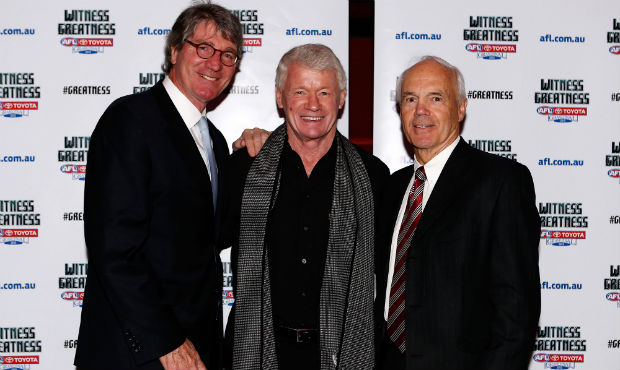234 games, 231 goals
173cm
71kg
Ross Smith was a courageous and supremely fit rover who took several years to blossom, but once he did, became one of the most respected players in the VFL.
His career kicked into gear in the 1966 preliminary final, and from then on the determined midfielder never looked back, winning a Brownlow Medal 12 months later with 24 votes. In the six previous seasons he had registered a total of six votes, illustrating his vast and rapid improvement.
Smith was also a heavy favourite for the 1971 Brownlow but fell just short, before skippering the Victorian team in 1972.
The opportunity to study a four-year course in just two years over in Perth proved too greater opportunity to pass up, and he spent three years at Subiaco Football Club, captain-coaching the Lions to its first flag in 49 years.
Upon returning to Victoria in 1975, he was talked out of retirement and played 12 matches under Allan Jeans before coaching St Kilda in 1977.
Smith was inducted into the Australian Football Hall of Fame in 2010 and named a St Kilda Legend in 2013.
What are your favourite memories of playing at the Saints?
Just playing with a successful team is my fondest memory. I was fortunate to go to St Kilda at a time when it was starting to develop as a very good club, and from a playing point of view we played in the finals for the first time in 1961, it had been 20 odd years since we did.
From 1961-1975 we had a period of time when we were frequently playing in finals. So the end of the year was always associated with finals or getting close to finals. I guess the alternative is to play in grand finals and win premierships and I was fortunate to do both.
Can you tell us much about that premiership day from start to finish?
Well not a great deal because it was a long while ago. We played off in the 1965 grand final and we were probably the better team in that particular year, but Essendon got the momentum by winning the first semi-final and then went through to beat us in the Grand Final.
I played my 100th game in the preliminary final and I remember Allan Jeans saying to me “This is your 100th game Ross, it’s time now that you really showed the benefit of all that experience of those games.”
So I led the team out on the ground for the preliminary final and I had a good day fortunately, and then we were able to play in the Grand Final.
That was just a terrific experience for us and when Breeny kicked that point, the crowd was just so noisy it was reverberating in and out of the stadium, I couldn’t believe it. That was a great day. Then we played off again in 1971 and unfortunately we were beaten by Hawthorn on the day.
RELATED: Ross Smith becomes a legend
What were you best years as a footballer?In the Brownlow year I had very good season even though Allan Jeans said in 1971 I had a better year. But I was competing with my other players in 1971 and I think I got 16 votes and John McIntosh got 18 votes. In 1967 I was fortunate enough not to compete with as many players for votes and won the Brownlow.

Smith was captain from 1970-1972.
How did you get to the club in the first place?
I was a local boy so I was zoned to the club. I lived in Hampton and I was an Essendon supporter only because I had family who lived a kick from Windy Hill. I used to go out there with my brother and sister and have a lovely day at the football. I played in the amateurs under 19s for the Hampton Rovers and I was fortunate enough to win a couple of B&F’s. Then I got asked to go to St Kilda.
How was your first pre-season for St Kilda?
I always liked pre-season and in that way I was a bit different to most of the other players who hated it. I became a physical education teacher, so I’ve always enjoyed training and exercising and still exercise today.
We trained two or three times per week and the only difficulty I had was that I didn’t have a car and had to get from Hampton to the Junction Oval in St Kilda.
I was at University and was playing football on Saturdays but had lectures from 9-11am. I really didn’t want to play in the reserves because they started at midday. Fortunately I only played two games in the reserves and then got selected for St Kilda. Ironically I played against Essendon and a couple of my heroes so it was a traumatic experience playing them in my first game.
WHERE ARE THEY NOW? Stewart Loewe
Do you remember how you were told you were going to debut?The Chairman of Selectors who would stand up on the bench and name the team in the majority of cases. But I think I may have heard it on the radio that night, because that was the way they communicated in those days. I can’t quite remember.
How did you find the transition from playing into coaching?
At what I thought was the end of my career In 1972 I took a job of captain-coach of Subiaco Football Club, in Perth. But it was a means to an end because I really went there to do some post-graduate study at the University of Western Australia. I was preparing myself to become a lecturer in physical education.
I was looking at something like six years of part-time study in Victoria where as I could complete it in two years full time over in WA.
In the first year as captain-coach of Subiaco we won the premiership which was fantastic. I had some pretty good young players like young Mike Fitzpatrick and young Dennis Blair and Austin Robertson - we had a good balance of experience and youth. Then I came back in 1975 as an assistant to Allan Jeans and after about four or five games we had a number of injuries to rovers and Allan said to me “Smithy, I think you have to play.”
I ended up playing 15 games that year. I wasn’t match fit and I hadn’t done much work, so in some ways I struggled. The students I was lecturing had a bet whether I would get a Brownlow vote or not, well they lost their bet.
I retired at the end of 1975 and then I was an assistant with Allan in 1976 before coaching the team in 1977. After I finished that year they had Mike Patterson who was a coach for a couple of years and then they had Alex Jesaulenko. I came back in 1987 as an assistant coach to Darrel Baldock and at the end of 1987 I got a job as a director AIS for three years. For the next 10 years I was director for the AIS sports science and sports medicine research. I was in Canberra for those 13 years which was an exciting and very fulfilling time.

Barry Breen, Des Tuddenham and Ross Smith at the 2013 release of '1966 - The Final Story.'
How did you combine work, study and football?
During the last three or four years of my playing career I was a part-time study. I was fortunate that the education department had given me part-time study leave, so I was doing an arts degree to enhance my qualifications and I found that it was a terrific balance to work, play footy and study.
What are you doing now?
I’m still working part-time. I work three days a week as a lecturer in the Australian Catholic University. I started a degree for coaches and Alan Richardson was one of the first to complete it. He, like a lot of coaches, found their coaching becomes all-consuming from a time point of view.
They don’t have the time to spend on study even though they like the idea of it, because their careers take over. That program is on the way out.
The other project which I’m involved in is running a community capacity building program in East Timor.
We take students over there to run an after school sport program so that we can promote messages of health, well-being and life skills. I’ve just come back from there and it’s been a very fulfilling project.
It’s sort of a bit like AFL Auskick but we’re using soccer because that’s their sport of choice. We had 800 kids over a period of three weeks come and participate in the program. We had 35 coaches do the course and FIFA actually sent one of their instructors from Malaysia who came and ran it.
RELATED: Smith inducted into Australian Football Hall of Fame
How would you go playing in the modern era?I would love to be playing today. From a safety point of view, the head is sacrosanct and I really take my hat off to the players who respect the safety of their opponent. The majority go out of their way to miss the head of their opponent.
In my day people would get you and whether it was in play or behind the play, it didn’t matter. In saying this, they hit harder now but it’s generally just body hits. Stars of my era like Bob Skilton or Ian Stewart would definitely be able to adapt to the way the game is played now.
One of my strengths was fitness. I had the ability to run, be a rover for the majority of the game and cover the ground. The only thing I might find difficult to adjust to is being taken off the ground all the time.
What are your views on the modern game?
I like it when the teams are playing a free-flowing game. I don’t like the style of play where you’ve got 36 players down in the 50 metre arc and I think the commission has got to take some steps to stop this.
It’s similar to when the commission decided we’ll have a centre square. I think it’s got to that stage where they’ve got make some changes which will make the game more aesthetically pleasing.
We are losing uniqueness in the game. We are not too dissimilar from rugby league, rugby union, basketball or soccer where we’ve got all the players around the ball at one time.
one of our unique features of footy was when we had players spread across the ground and I think we have to make a couple of significant changes to our game to get back to that. Coaches will always say they’ve got the best interests at heart, and I’m sure they do, but their primary task is to win games. If they can win it by any means, I’m sure they will.


